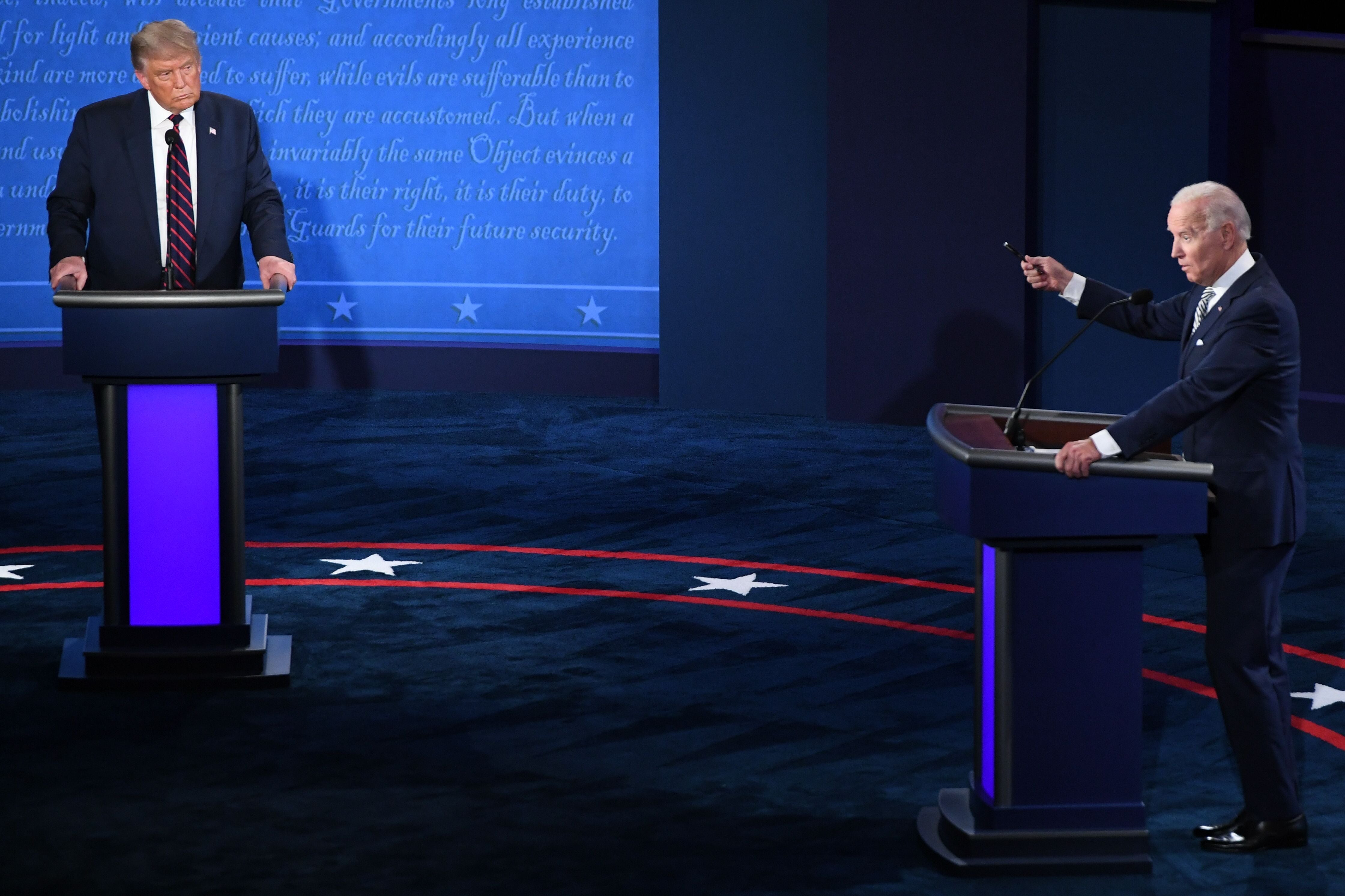What are the economic implications of Donald Trump’s coronavirus diagnosis?
The news injects a considerable dose of uncertainty into an electoral contest whose outcome is likely to have profound consequences for the policies pursued by the world’s largest economy, says Ben Chu


The world’s financial markets responded like a scalded kitten to the stunning news that Donald Trump has tested positive for coronavirus with just a month to go before the presidential election.
Share prices fell. The usual assets to which traders and investors turn in times of fear – American government bonds and the Japanese currency – rose in value.
The price of contracts designed to protect investors against market volatility also rose.
In one sense this is unsurprising. The news injects a considerable dose of uncertainty into an electoral contest whose outcome is likely to have profound consequences for the economic policy pursued by the world’s largest economy.
What happens to Trump’s campaign if he is unable to travel around the country or to take part in televised debates? How much does that hinder him?
Could a rapid recovery from the virus actually help him expand his support beyond his base? Or might Trump ultimately be forced to withdraw from the race? Is it conceivable that the election could be delayed?
Could Covid be already cutting a swathe through the White House? What are the implications of that for the functioning of the US executive government?
These are the sort of questions that traders will have been asking in the hours since the news broke.
And because there are no obvious answers to any of them, it’s natural they would be unsure about how to price financial assets in response to the news.
One argument, made by some on Wall Street, is that the news makes a defeat for Trump even more likely and that a victory for the Democrat candidate Joe Biden would result in higher taxes and lower corporate profits and would thus be bad for share prices.
Yet the assumption that a Biden victory would be negative for the economy is by no means obviously true.
New research by analysts at the credit rating agency Moody’s argues Biden’s economic programme would, in fact, boost the performance of the US economy relative to Trump’s.
They estimate that Biden’s plans for additional infrastructure spending would provide more of a fillip than Trump’s proposed tax cuts.
As for the stock market, other research suggests that shares have exhibited very respectable returns under Democrat presidents.
In the end it’s probably unwise to look to the stock market for political, or even economic, analysis. Even in normal times, fluctuations in the traded price of shares on any given day tell us little about a country’s future direction.
In March, as the pandemic was declared, the US stock market sank at a faster rate than it did even during the Wall Street Crash of 1929.
But it has surged in value since March even as millions of Americans lost their jobs. That probably reflects the US Federal Reserve’s pledge to enact effectively unlimited asset purchases, given that this money printing tends to boost asset prices.
But many have wondered whether a dangerous disconnect has, once again, opened up between financial markets and the real economy and that a “correction” is coming.
A better place to look for a signal of America’s economic fortunes in the short term is the wrangling of Congress over the extension of trillions of dollars of stimulus and income support measures for millions of Americans who are still without work because of the pandemic.
If Congress is unable to deliver an extension of that lifeline, the economic consequences will be severe and traumatic no matter who wins the White House.
In the longer term it’s no exaggeration to say that this election brings America to an economic, as well as political, crossroads.
While Joe Biden will not return America to the pro-globalisation policies of the Obama years or perhaps be much less hostile towards China than Trump, it’s also clear that he would junk most of Donald Trump’s beggar-thy-neighbour trade protectionism. He would also take the decarbonisation imperative seriously.
The war against US democratic institutions – the fundamental underpinnings of America’s economic prosperity – would also end.
From that perspective perhaps what should surprise us is that financial markets are not more volatile in response to the twists of this historically important electoral context.



Join our commenting forum
Join thought-provoking conversations, follow other Independent readers and see their replies
Comments